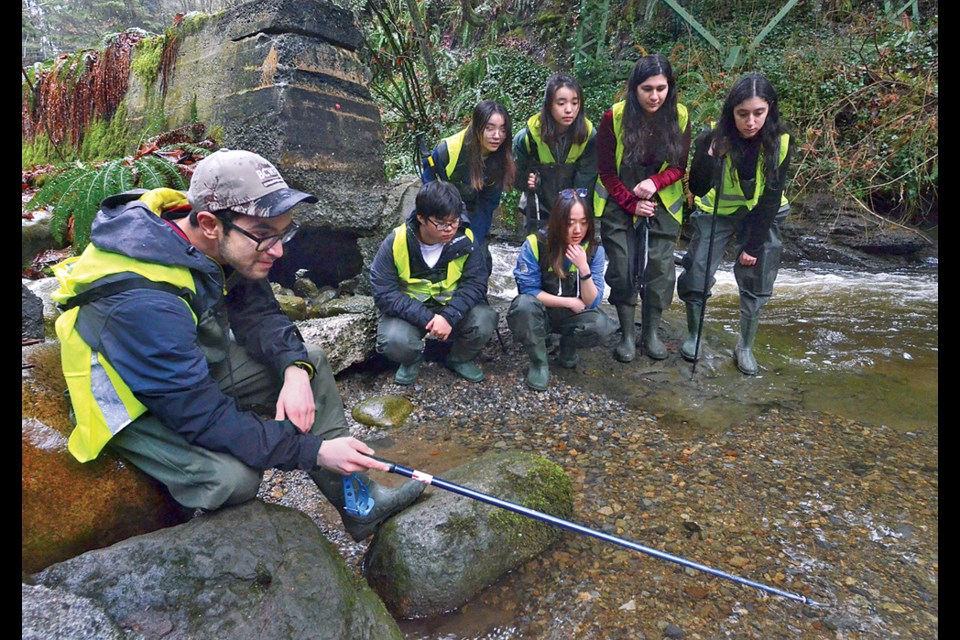Salmon returns on two of West Vancouver’s major creeks were up in 2022, but the species that spawn locally continue to face stressful times.
That was the message from the West Vancouver Streamkeepers Society to District of West Vancouver council, after collecting and analyzing data from the Brothers and Hadden creek systems.
Every fall for the last 15 years, the Streamkeepers have partnered with West Vancouver high school students to survey tributaries of the Capilano River for returning chum, pink, coho and chinook salmon.
The volunteers presented their 2022 results to District of West Vancouver council on Jan 23.
Over seven weeks, the group spotted 527 salmon, about three quarters of which (395) were chum. The group also counted 103 coho and 29 chinooks (pinks only return in odd-numbered years). The year before, they logged 193 chum, 147 coho, 27 chinook and two pinks for a total of 369.
Four years ago, the chum return hit its lowest number ever since the counts began with just 107. That year, low water flows were a concern for salmon and there was a high level of predation by river otters.
Weather was a major factor in salmon returns again last year, with the fall drought making it impossible for returning fish to reach their home waters for several weeks into their usual spawning window. The Streamkeepers and high school students delayed their survey by two weeks as a result.
“Elsewhere on the coast … it is estimated that thousands of salmon had died before spawning. Thankfully, we did not see that much of an impact in West Vancouver, but climate change does result in higher pre-spawn mortality and we have to wait to see how will this affect the number of salmon in future years,” student volunteer Tanya Rahmatian told council.
By contrast, there was so much rain in the fall of 2021, the group was worried that eggs tucked under the gravel had been washed away, although spring 2022 surveys of juvenile salmon in the creeks found increases in their numbers, the group reported.
Joseph McDaniel, West Vancouver Streamkeepers director, said returns of coho salmon at the Capilano River Hatchery were down significantly this year, another likely consequence of poor water conditions and climate change.
But, optimistically, the students’ continued enthusiasm for participating in the surveys each year does bode well, McDaniel added.
“Education is vital to the health of any community and to our world. For me, this program serves as a sign of hope that we will be able to work together to address the important challenges of our time,” he told council. “I think we’re at the point now where we’re all in this together and we need to be in this together because the future of our society and planet and the salmon are very intricately connected.”
The Streamkeepers are the main stewardship group working on West Vancouver’s creeks, carrying out citizen science and habitat restoration projects aimed at giving local salmon every chance of success.




